BLOG

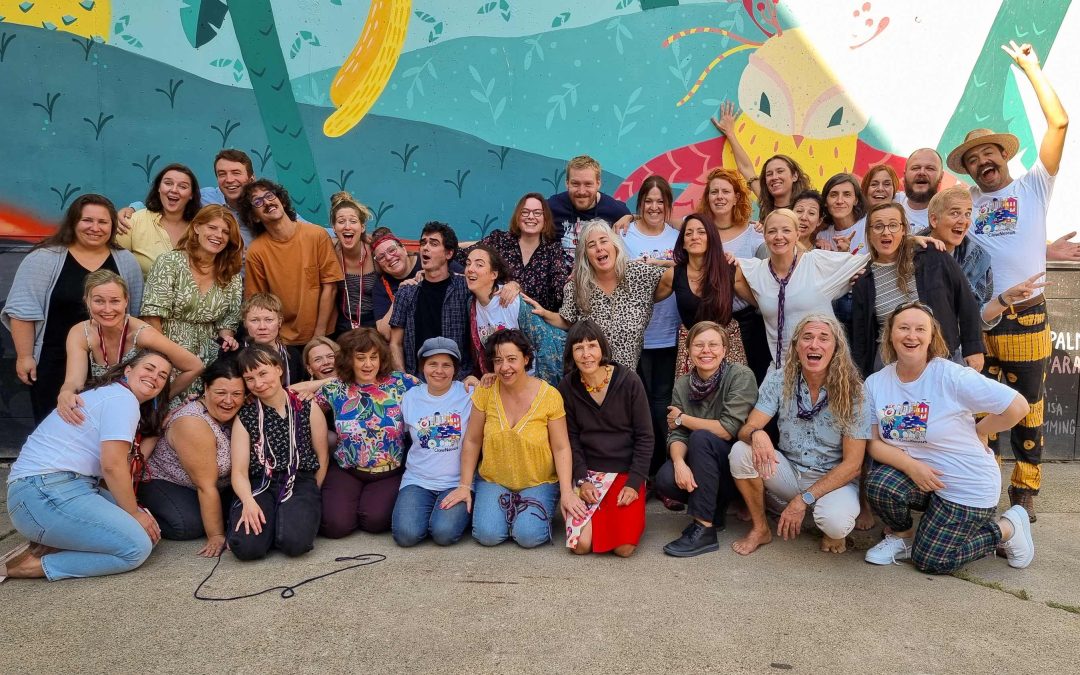
We grew and learned so much – the closing meeting of the ClowNexus project
Is it possible to feel both joy and sadness simultaneously? As healthcare clowns, we know it is!
This is exactly how we felt at the closing meeting of the ClowNexus project that took place last week in Vienna.
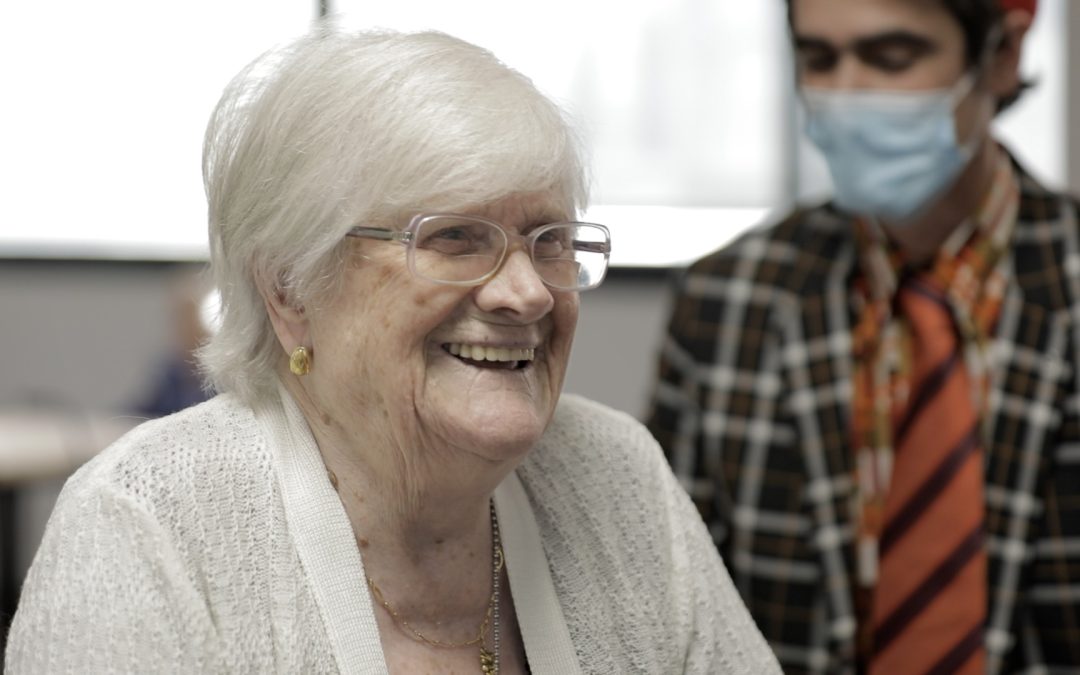
Dementia Care Mapping: a tool to measure quality of live and quality of care of older people
As a person’s dementia progresses, the cognitive functioning is decreasing, resulting in reduced communication and social isolation. The elderly seems to withdraw into their own world. How is it possible to tell their needs and if their needs are met?
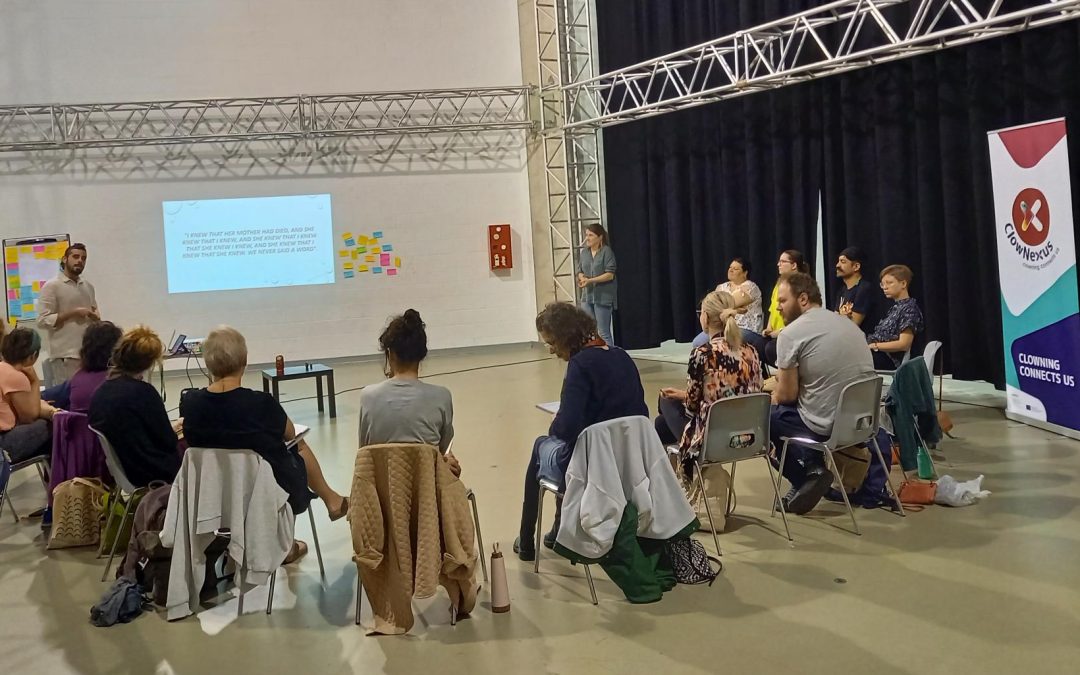
Grief support for older people with dementia
Do senior citizens perceive or remember the death of a beloved person? What signs can we recognize that might indicate that a person with dementia is experiencing grief? How can we best support them?
Read the interview with Ibon Nuñez, Geropsychologist specialized in grief, loss, and trauma intervention.
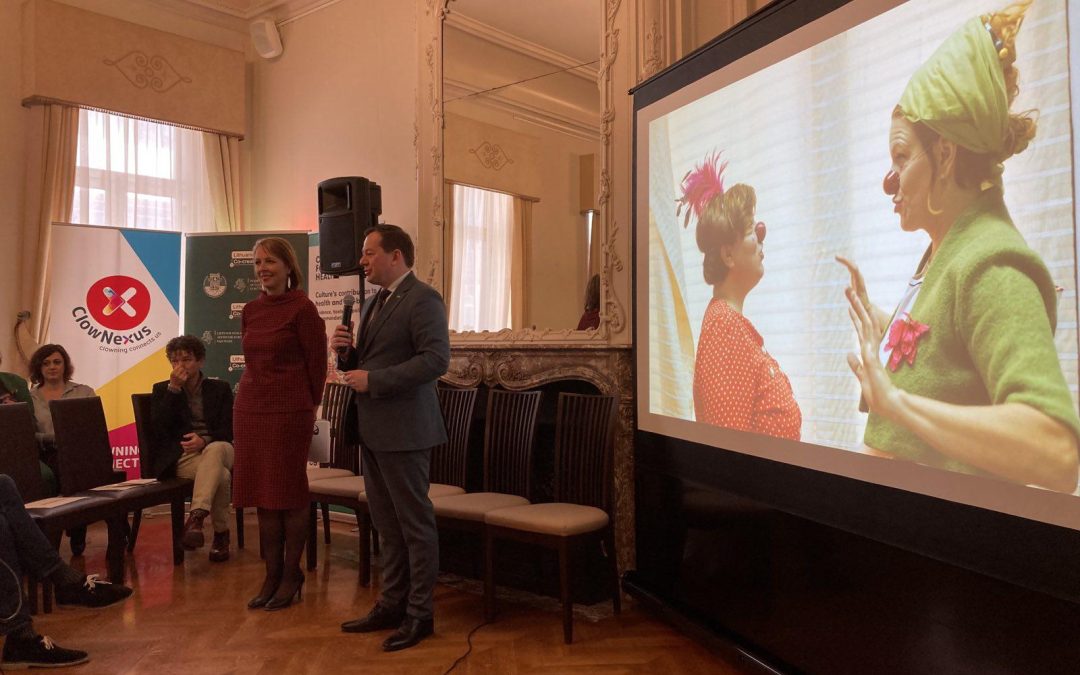
Brussels: Culture and Mental Health – Practices and Policies
On May 23rd ‘Culture Action Europe’ and RED NOSES International invited to an event as part of the current EU projects “Culture for Health” and “Clowning Connects Us”, which tool place at the Permanent Representation of Lithuania to the European Union in Brussels.
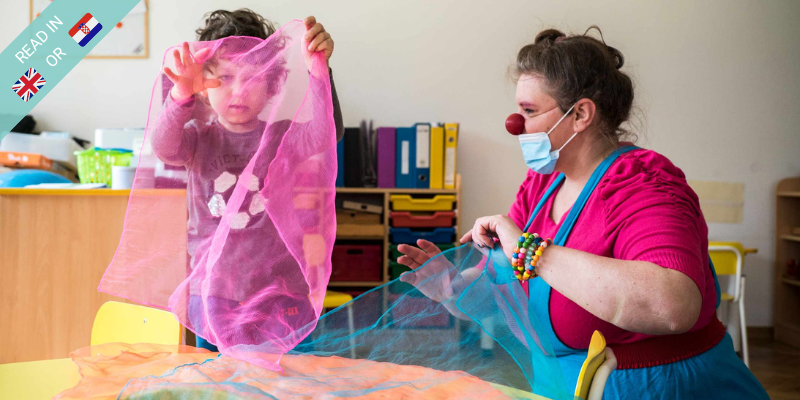
Healthcare clown organizations are creating new artistic approaches for children on the autism spectrum
Healthcare clowns from seven different European countries gathered from 29th January until 3rd of March in Zagreb, Croatia, as part of the ClowNexus project in order to share their previous experiences and artistic learnings in working with children on the autism spectrum. As part of the five-day laboratory, the international working group of clowns interacted with the children of the Zagreb Autism Center.
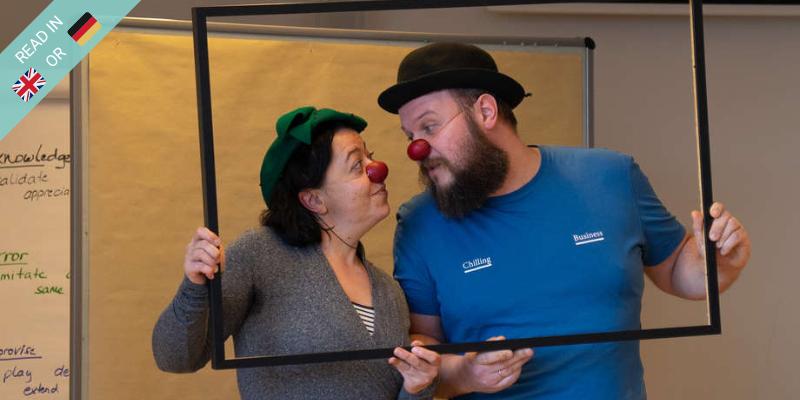
Picture frames, foot choreographies and subtle movements:
The ClowNexus Artistic Laboratory in Austria
Wednesday morning, 9 am at the Grillhof educational institute in Innsbruck, Austria. It is the third day of the “Clownexus” Artistic Laboratory.
ClowNexus is a three-year project (November 2020-October 2023) in which eight European healthcare clown organisations explore how clowns and humor can build and facilitate social connections and better communication with people with dementia and children on the autism spectrum.
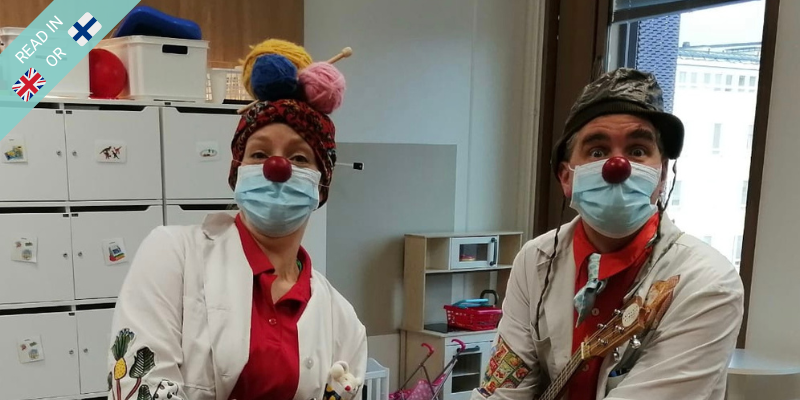
Learnings from working with children on the autism spectrum
The three-year project ClowNexus is entering its last third of its period. Therefore, we asked Elina Reinikka from our project partner Sairaalaklovnit in Finland about her learnings and insights about the work with children with autism.
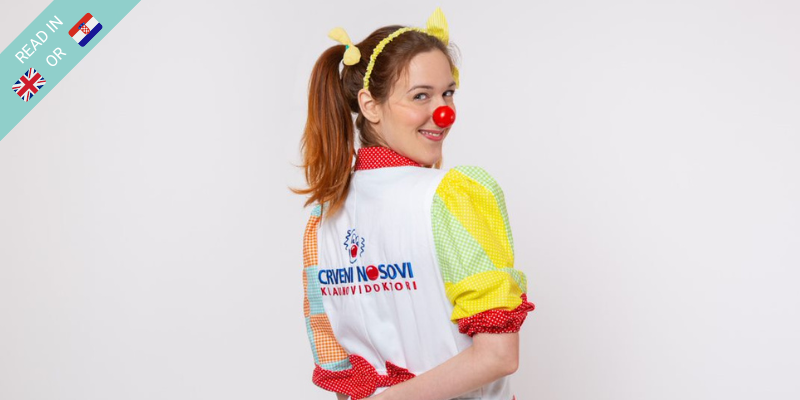
„I don’t know. This is what I knew.“
Working with elderly with dementia is not easy. Sendi Bakotić from the Clownexus partner Crveni Nosovi in Croatia shares her insights on how to connect with elderly who seem not to respond to outside stimuli.
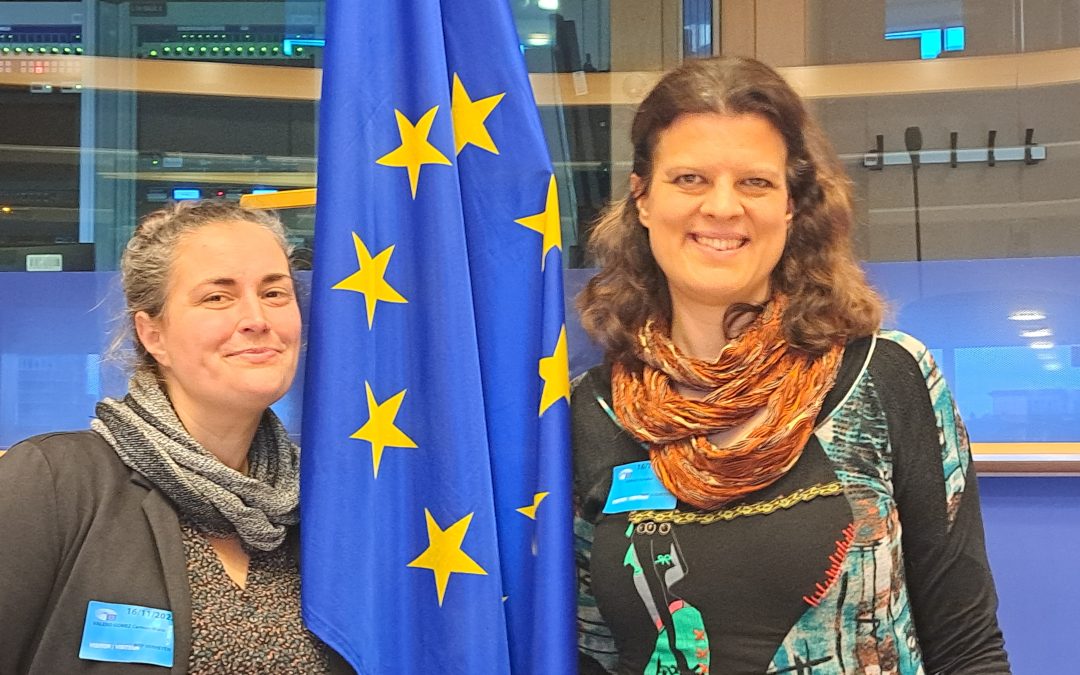
European Parliament: Healthcare Clowning and Mental Health
Natalie Porias, Managing Director of RED NOSES International was invited to the European Parliament to speak at the seminar “Culture as a driver for health and well-being in the EU*”, which was jointly organised by Mariya Gabriel, Commissioner for Innovation, Research, Culture, Education and Youth, and Sabine Verheyen, Chair of the European Parliament’s Committee on Culture and Education.
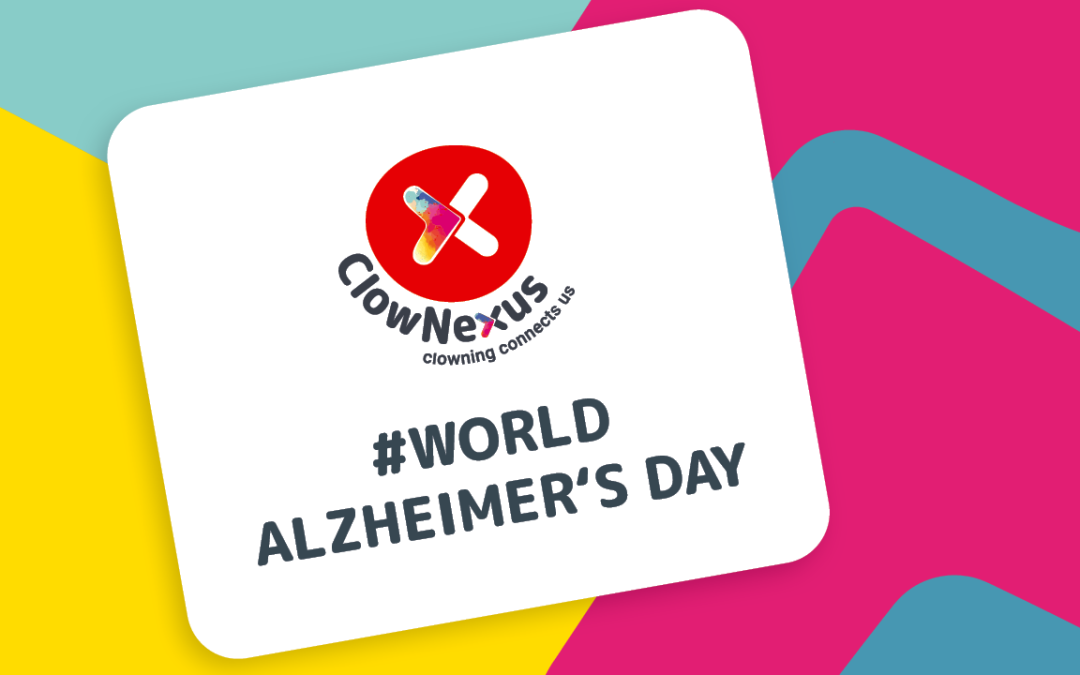
World Alzheimer’s Day – how to connect with elderly with dementia
Within the ClowNexus project RED NOSES is partnering with other healthcare clown organisations to dive deep into working more impactful with elderly with dementia and children with autism. Among the partners is Pallapupas from Spain, where we interviewed two experienced clowns Núria Valerio and Ricardo García who are working in elderly homes in Barcelona.




Recent Comments